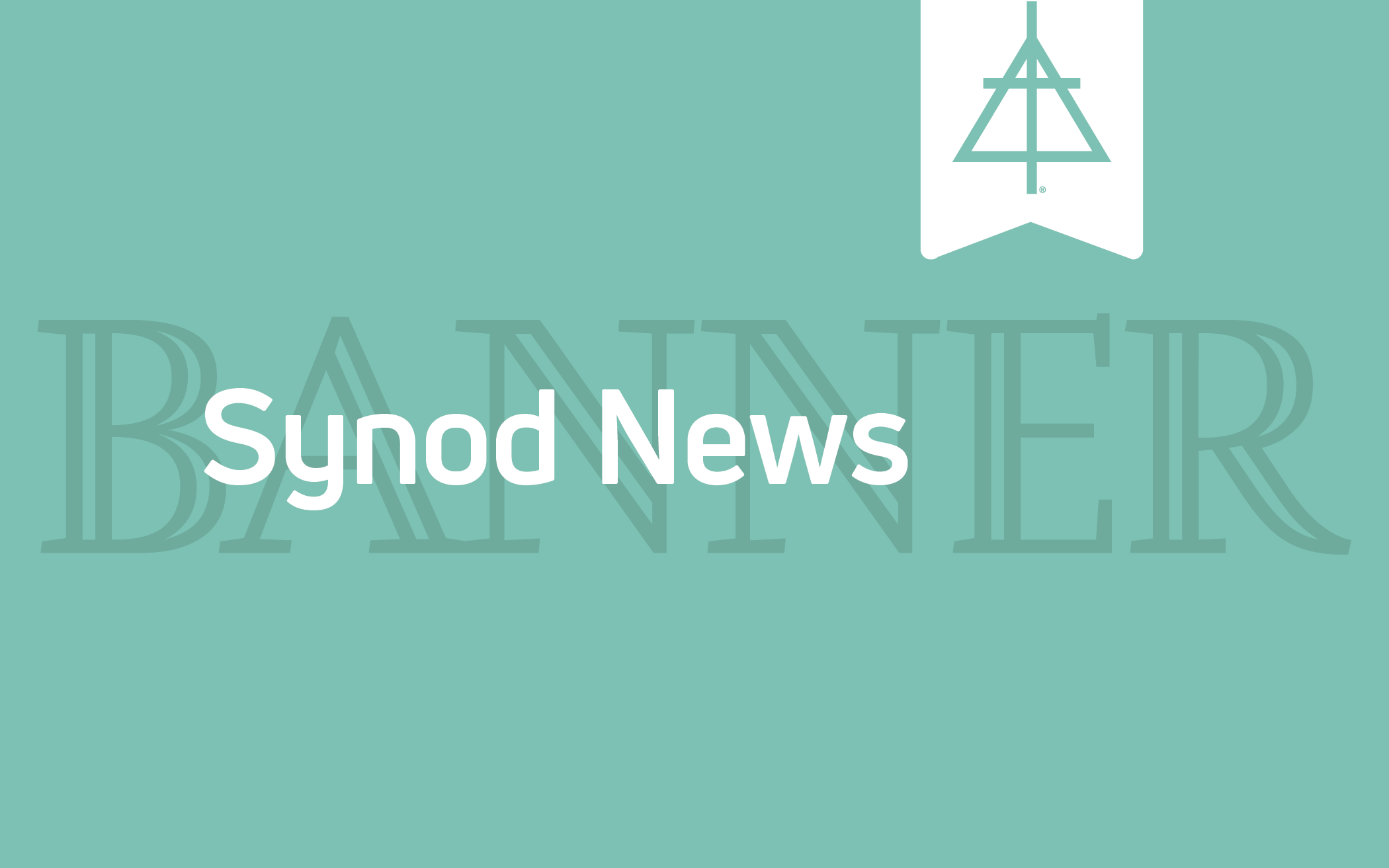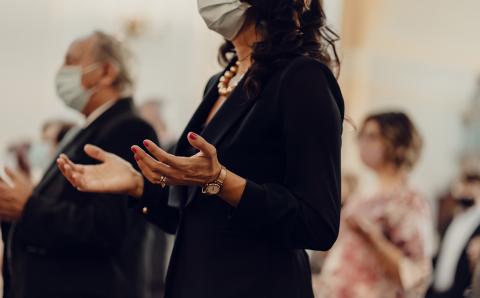The Council of Delegates of the Christian Reformed Church decided on behalf of Synod 2021 that the views of people from the LGBTQ community need to be heard by the delegates to Synod 2022. Synod 2021 was canceled due to the COVID-19 pandemic, so the Council met in special session to address matters that cannot wait until Synod 2022.
Specifically, the Council instructed executive director Colin Watson Sr. “to develop a mechanism or forum that would allow LGBTQ voices to be heard by the delegates to Synod 2022 with regard to the human sexuality report.”
Lantern Community CRC, a small urban congregation in Calgary, Alta., requested the consideration. Its request—Overture 17 in the Agenda for Synod 2021—was vaguely worded, but the Council deemed what it was asking for was “an intention to create an effective space for LGBTQ believers to share their perspectives on the recommendations that are coming to Synod 2022 as part of the human sexuality report.”
The human sexuality report is formally known as the report to synod of the Committee to Articulate a Foundation-laying Biblical Theology of Human Sexuality, mandated by Synod 2016 to “provide concise yet clear ethical guidance for what constitutes a holy and healthy Christian sexual life, and in light of this to serve the church with pastoral, ecclesial, and missional guidance that explains how the gospel provides redemptive affirmation and hope for those experiencing sexual questioning, temptation, and sin.” (Acts of Synod 2016). Those appointed to the committee agreed to work within the parameters of the Synod 1973 decision, namely, that being same-sex attracted is not sinful, but acting on those attractions is incompatible with Scripture.
The committee released its 175-page report in October 2020, affirming the CRC’s current position on homosexuality and further, declaring that it already has confessional status in the church. The report was scheduled to come to Synod 2021, but the Council decided in February to delay that until Synod 2022, giving churches and classes more time, particularly after COVID-imposed restrictions abate, to meet and process the report.
At this June meeting many delegates expressed their opposition to providing a process outside of the normal synodical procedures for church members to be heard.
Tyler Wagenmaker, (Classis Zeeland) noted that Synod 2016 turned down a very similar overture that asked that synod appoint LGBTQ advisors. “We have no reason, probably not even the authority to overturn the decision of Synod 2016,” he said. See “No LGBT Advisors for Synod” (June 17, 2016).
John Lee (Classis Iakota) said he is in favor of listening, but that this would work against the deliberative process of synod. “Importing outside voices that haven't been carefully vetted and chosen by churches and classes, that have been chosen because of a narrow identity, is going to create the sort of anxiety that's going to make it hard to listen,” he said. “I would rather trust the Holy Spirit to work through churches and classes to delegate prayerful people who will not come as representatives of the classes, but as brothers and sisters in Christ, perfectly committed together to discern the spirit's voice in Scripture.”
Ralph Wigboldus (Classis Huron) said that the whole purpose of the study committee was to have those conversations. “They were mandated by synod to have that conversation and they did have that conversation and one of the things that impressed me most about the report is how many people they had the conversation with,” he said. “It’s not synod’s job to have that discussion all over but to discuss the results of that conversation.”
Melissa Van Dyk (Canadian at-large delegate) disagreed. She said what she is hearing from LGBTQ believers and their allies is that their theological beliefs, as outlined in the report, have either been misrepresented or not fully represented, or set up like a strawman, and that the stories selected to be highlighted in the report do not actually represent their experience.
Sam Cooper (Classis Toronto) echoed that. “The least authentic and what often appeared to be the most contrived voices in the report were those of LGBTQ community in the Christian Reformed Church of North America.”
The vote count wasn’t released but chair Paul DeVries said in the meeting it was “an obviously close vote just by the amount of time it took us to get the exact tally.”
Wagenmaker, Lee, and Wigboldus recorded their negative votes as well as William Koopmans (Classis Hamilton), Bruce De Kam (Northern Michigan), Mark Verbruggen (Ontario Southwest, formerly Chatham), Mark Vande Zande (Heartland), Sherry Fakkema (Pacific Northwest), Michael Koetje (Kalamazoo), Tony Lara (Arizona), Drew Sweetman (Muskegon), Wendell Davelaar (Northcentral Iowa), Roger Sparks (Minnkota), Paula Coldagelli (Wisconscin), Michael Ten Haken (Lake Superior), Lora Copley (Red Mesa), and Brian Ochnser (Central Plains). Registering of a negative vote in the context of a deliberative body’s decision means that a delegate cannot support the decision of the body and in registering is able to make that public.
Following the vote, DeVries prayed for the Council before moving on with the agenda, recognizing human sexuality as a “very divisive, very difficult issue for us.”
Watson said he finds himself in the position of being asked to do something on behalf of the Council, knowing that there are a number of delegates who oppose it. “If, over time, members of the Council want to suggest ways in which this would be more acceptable, I would be certainly willing to entertain those kinds of suggestions,” he said. “If there are some ways in which this could be carried out that would be more in line with creating even more unity within the body, I would appreciate that.”
See also:
Toolkit Helps Churches Discuss Sexuality Report (CRC Communications, November 4, 2020)
Sexuality Report Released to Churches, Suggests Historical Position is Already Confessional (The Banner, November 25, 2020)
Reaction to Human Sexuality Report Includes Responses From a Group of Students (The Banner, April 16, 2021)
About the Author
Gayla Postma retired as news editor for The Banner in 2020.








